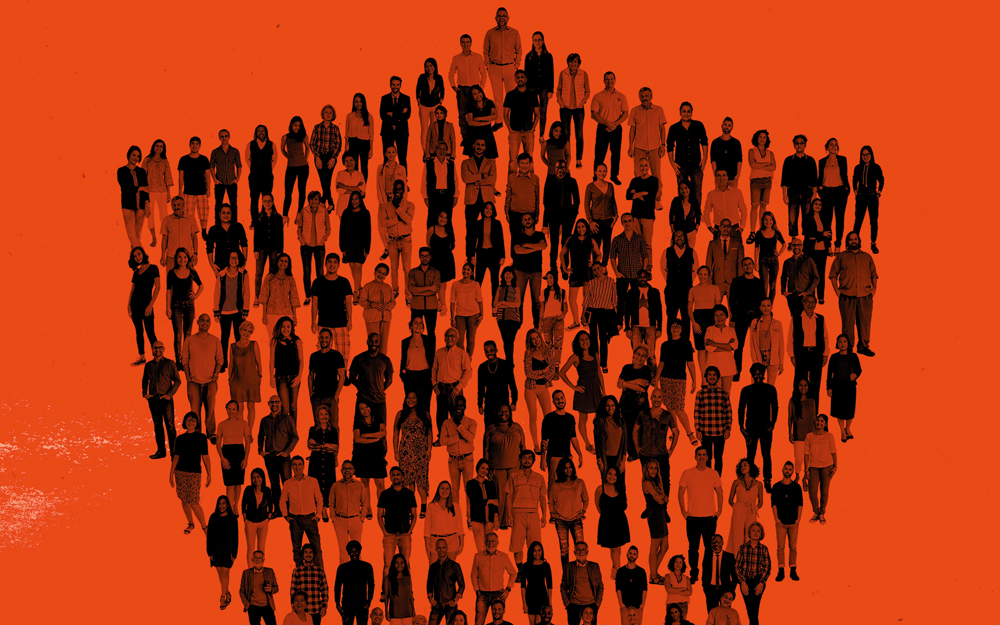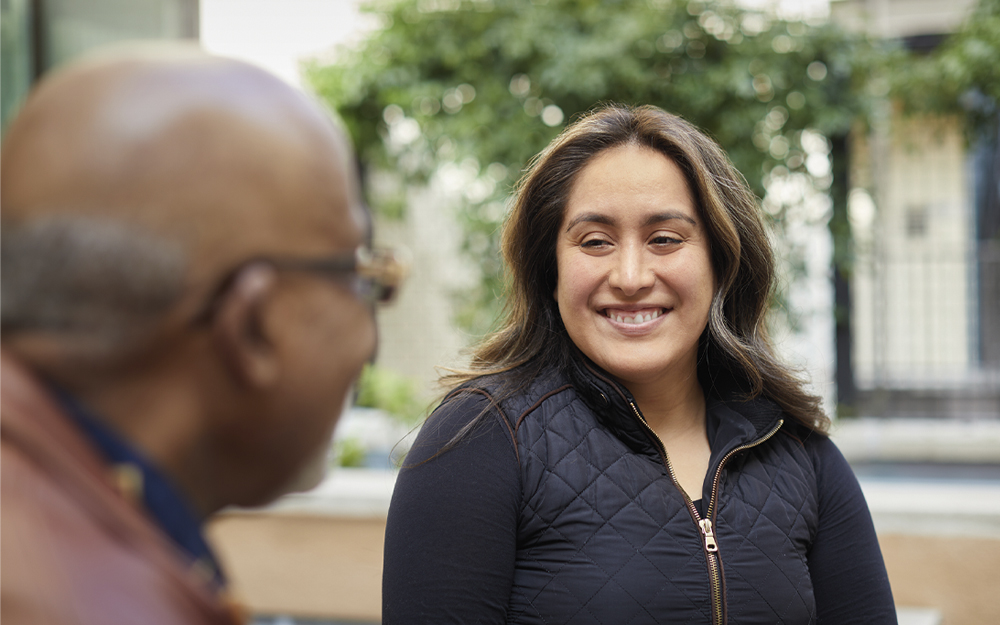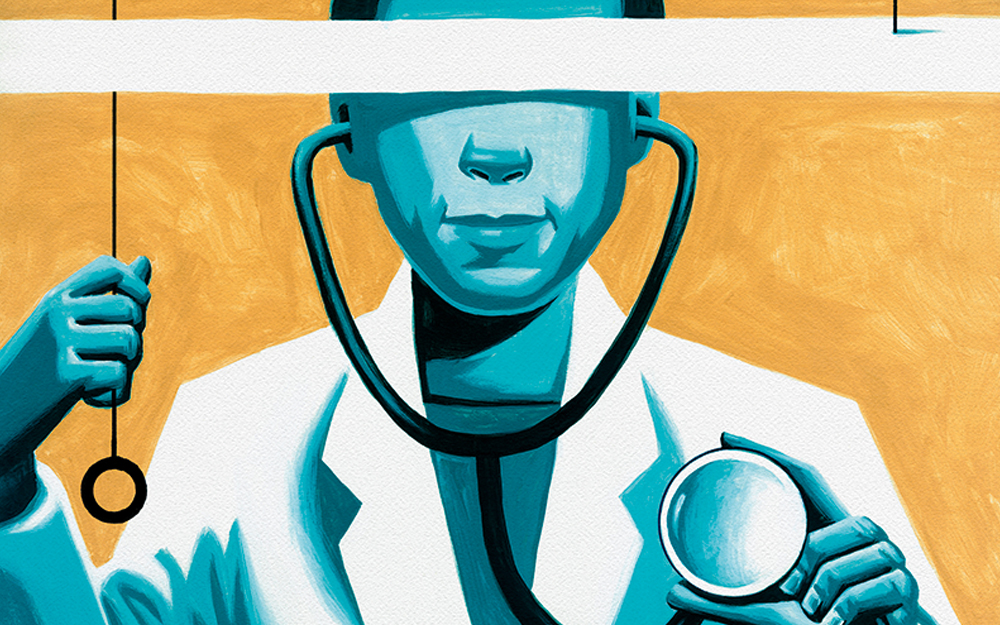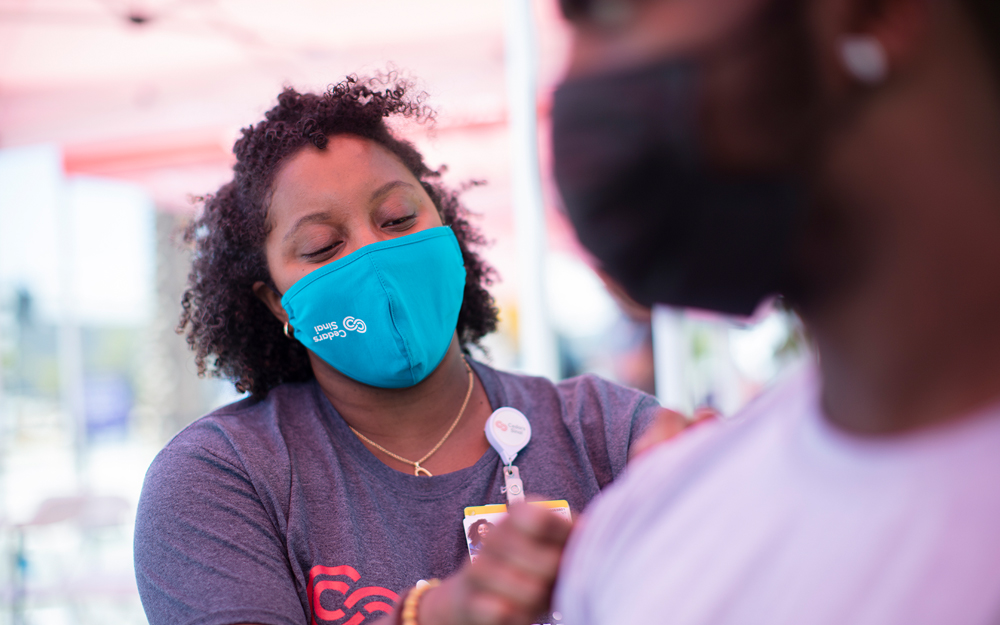COVID-19 Immunity Across Los Angeles
Date
June 13, 2022
Credits

Date
June 13, 2022
Credits
Medical providers featured in this article
In Brief
{{cta-block}}
Individuals may respond differently to COVID-19 vaccines
People should feel confident that their COVID-19 shots will keep them safe from serious illness. But overall, individual immunity is still a bit of a mystery: Who produces the strongest immune response? Who stays protected the longest—and what can this reveal about a person’s overall and future health?
Cedars-Sinai investigators are leading an ambitious, five-year study that seeks to better define how and why people respond differently to COVID-19 vaccines. Ultimately, they hope to understand how factors such as age, sex and preexisting conditions influence immune response. Results could inform public health efforts to curb the spread of the virus and its variants—and improve long-term health across the population.
We’re taking the science and developing tools to help patients with questions, like: What is the outlook for myself and my family?"
Dr. Susan Cheng
The EMBARC study tracks immune measures, including antibody levels, in tens of thousands of Cedars-Sinai patients who have been vaccinated against COVID-19, including children as young as 5. Study leaders are working with community partners to recruit from schools, churches and neighborhood associations, and developing special outreach programs to ensure that the most vulnerable patients—those with immune-altering diseases or who have had organ transplants—are represented.
"We’re on a mission to expand our understanding as broadly as possible," says Dr. Susan Cheng, director of Public Health Research at the Smidt Heart Institute and the Erika J. Glazer Chair in Women’s Cardiovascular Health and Population Science. "This data will help us understand how we can build dynamic, long-lasting immunity as individuals and as communities. We aim to understand how we get out of the pandemic and how we survive and thrive beyond it."
Once published, the research will expand on insights gained from previous studies focused on healthcare workers, which found variations in immune response based on whether people had been infected with COVID-19 or had been previously inoculated for other infectious diseases.
Study participants will have access to their own antibody-level measures as well as a database that could predict the strength of their immunity at different times following vaccination.
"We’re working to take the science back to our patients and our communities by developing tools to help with questions like: What is the outlook for myself and my family?" Dr. Cheng says.




